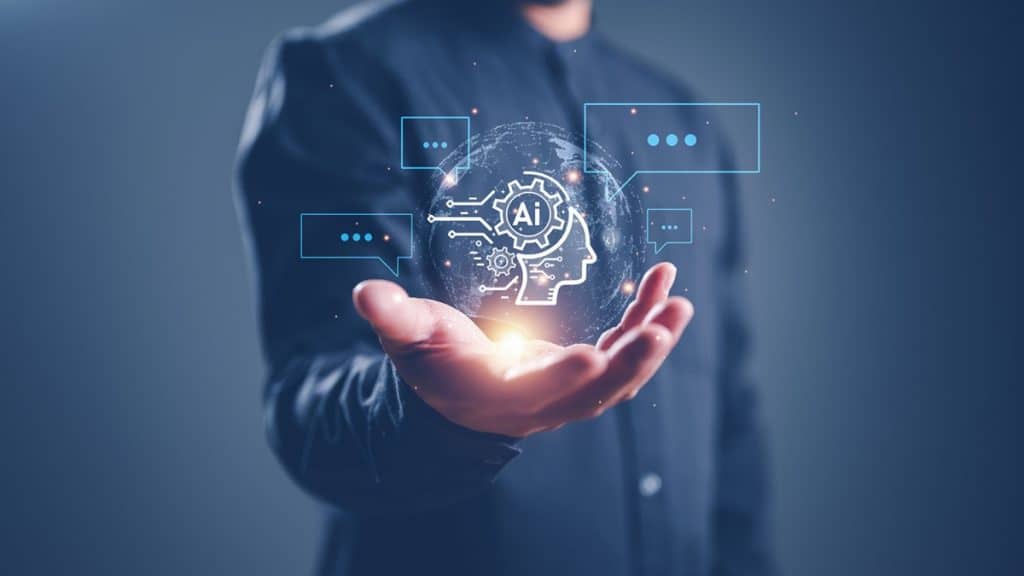Human Resource Management is not limited to handling payroll and recruitment. From the rise of remote work to the transformation of skill sets, HR professionals need to face various challenges while maintaining employee well-being and organizational objectives.
This includes finding the right talent, employee engagement, maintaining a flexible workforce, and nurturing employee growth. Human resources can leverage AI technologies such as machine learning, data analytics, and automation to manage this workload effectively.
Artificial Intelligence (AI) has now become an inevitable tool across industries, and HR is no exception. This is evident from the 27% rise in global investments in generative AI in 2023.
Human resources outsourcing services and integrating AI can help in effective HR management.
Role of AI in HR Management
Human resources have transformed from an administrative function to maintaining the overall organization’s well-being. AI has a major role in this transformation, from automating repetitive tasks to providing strategic insights. Here are some of the areas where AI can ease the HR management process.
● Resume Filtration
One of the most time-consuming processes in HR is finding the right talent. It all starts with filtering quality resumes from numerous applications. AI-powered tools can ease this process by comparing the received resumes against the job descriptions and identifying the resumes that fit the JD. It significantly reduces the time required for manual screening.
Applicant Tracking System (ATS) is one of the widely used applications of AI in human resources, which can filter quality candidates from a large number of received applications.
Advanced AI tools can go beyond basic qualifications and filter candidates based on soft skills, and cultural background, and assess their performance based on previous experiences.
● Automating Onboarding Process
A hassle-free onboarding process is critical for making new employees comfortable and fitting into the company culture. AI can help to achieve this by automating tasks like document verification, paperwork, training scheduling, and workspace allocation.
HR can leverage AI chatbots to answer the FAQs from employees, walk them through company policies, and create a personalized training module. Content localization is another application of AI in the onboarding process, which helps to enhance learner engagement.
● Employee Engagement
Employee engagement can foster a productive environment. HR can use AI-powered data analytics to identify the level of employee satisfaction by analyzing communication patterns, feedback, and performance over a period.
This information can also be used to find the skill gaps and create training programs based on the need. AI can also help streamline compensation and benefits based on the current market standards. Additionally, AI-powered chatbots can provide real-time support for employee queries.
● Employee Records Management
Artificial intelligence can make the process of records management simpler. The creation, updating, retrieval, and disposal of employee data can be automated. It also ensures data accuracy and security.
Human intervention can be highly reduced in processes like classification, categorization, and sorting of employee data. This large set of data can be used to conduct predictive analysis and take proactive measures against threats and trends.
● Payroll Processing
Payroll management needs a high level of data accuracy which makes it a complex task. Leveraging AI can reduce the risks of error by automating calculations of salaries, deductions, and bonuses. It can also handle even more complex scenarios like overtime, shift allowances, and different pay rates.
Using AI for HR operations will ensure timely payments, accuracy, and compliance with tax regulations.
● Performance Management and Assessments
A company’s growth depends on its employees’ performance. HR needs to analyze every employee’s performance and provide individual feedback to effectively optimize their performance. It is a time-consuming and complex process.
Artificial intelligence tools can analyze employee data like performance, strengths, and weaknesses and can provide a detailed report on development areas. HR can use this report to create a training plan and provide targeted feedback. This can foster a continuous improvement plan for the organization.
● Employee Benefits Administration
There are several benefits available for today’s employees. But, everything is not accessible to everyone. Using AI, employees can get personalized benefit recommendations according to their needs and preferences. It can make sure that employees get the best benefits, which in turn can improve employee engagement as well.
● HR Support or Service Desks
HR can leverage AI-powered chatbots to provide prompt responses to employees’ queries related to policies and benefits. It can free HR from routine tasks and help them to focus on more complex issues. The data collected through AI interactions can also be used to identify common issues and improve HR processes.
Affording the cost of integrating AI into the HR process can be a challenge for SMBs. But still, they can utilize AI and get a lot more benefits in their human resource management if they choose to work with HR outsourcing services.
Bottom Line
AI is a valuable tool to be used by HR professionals, not a replacement for them. It aids HR management in various ways including talent acquisition, decision-making, risk mitigation, and cost reduction.
The future trends of AI in HR management can give an even deeper analytics report of an employee. Tools like Natural Language Processing (NLP) and Machine Learning (ML) can be used for sentiment analysis and feedback interpretation which can give a better understanding of an employee. Thus, HR can take proactive measures and respond effectively based on their behavior.
There are some challenges in integrating AI into HR processes. This includes the cost of recruiting AI talents, buying AI tools, technology shift challenges, and more. Instead, they can use HR outsourcing services that already have these talents and tools.
With AI-integrated human resource consulting firms taking care of everyday tasks, the in-house HR team can spend their time on what matters. They can work on keeping employees excited about their jobs and helping the company run even smoother.
